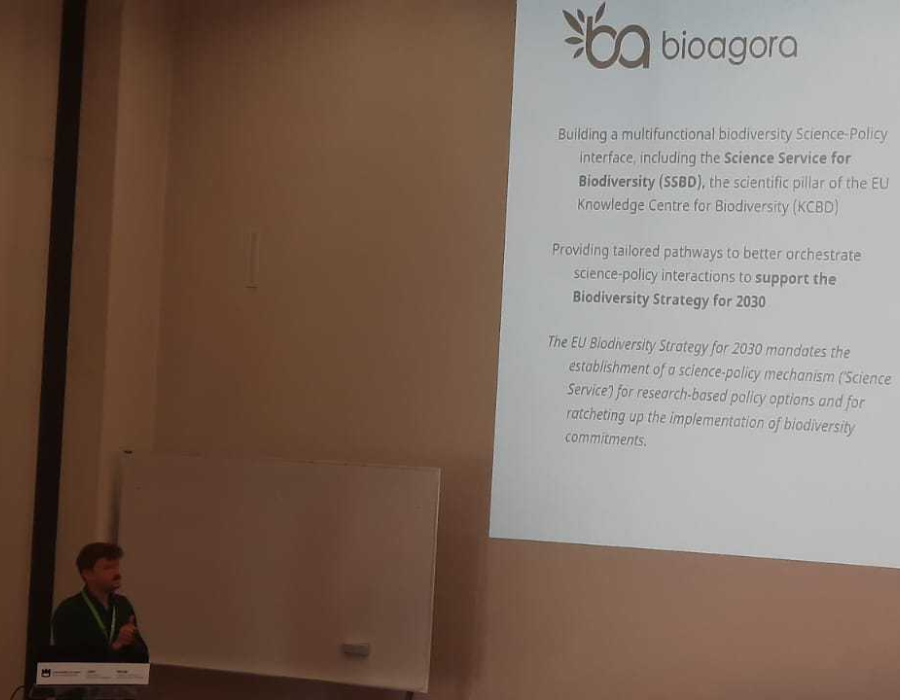Between 13 and 16 May, the annual conference of Alternet took place in Aveiro, Portugal. Reflecting the organisation’s focus on biodiversity and ecosystem services as they relate to science-policy interfaces (SPIs), the event bore the theme of “Achieving transformative change for biodiversity”. Over the three days in question, important discussions on the future of the biosphere involved researchers, decision-makers and practitioners from across the European continent.
The second day of the conference saw a joint session organised by three projects funded under the Horizon Europe programme - BioAgora, CO-OP4CBD and RESPIN. The topic they presented was “Engaging in the science-policy interface: addressing capacity needs to meet their transformative potential”. At its core, the session was an opportunity to show the vision and progress underpinning the trio in their respective, but complementary efforts to strengthen SPI frameworks within the European Union (EU).
On BioAgora’s side, representation was provided by project coordinator Kaisa Korhonen-Kurki (Finnish Environment Institute) and Jomme Desair of (Research Institute for Nature and Forest). They were joined by Constance Laureau and Nathalie Morata (Foundation for Research on Biodiversity) as well as Brooke Wilkerson and Fiona Nevzati (Alternet).
Mr. Desair led the presentation of BioAgora within the session, highlighting its central objective - establishing a Science Service for Biodiversity (SSBD). A key theme of his showcase was that this new entity is not meant to replace, but to incorporate and centralise existing processes, networks and partnerships for feeding scientific insights into policy-making in the EU. With this in mind, the three main functions that the SSBD is intended to serve were explored in greater detail:
-
transforming processes within and between science and policy to facilitate their closer interaction
-
creating and supporting thematic Knowledge Exchange Networks wherein topic-specific expertise can be harnessed for the needs of decision-makers
-
answering research requests by policy actors and building a supporting evidence base
Building off on this introduction, Mr. Desair also presented the research undertaken within BioAgora into the transformative potential of networks. Its main conclusion was said to be that agility is at the core of an actor framework’s capacity to experience and endure lasting and far-reaching changes. How easy navigating processes of collaborating, disrupting and challenging is within a given network is a key consideration to be made in assessing this potential. The full study is contained within project deliverable 2.3 (“Report on transformative potential of the Science-Policy Interface networks”).
On 15 May, the session “Citizen science for transformative biodiversity action: Concept and empirical examples” also saw participation by BioAgora partners. Fiona Nevzati (Alternet) and Leonardo Veronesi (ECSA) took part in an insightful discussion on the role and challenges before citizen science as part of modern-day research. Trust and motivation for the volunteers involved were singled out in this context as factors of crucial significance.
Further details about the event are available on Alternet’s website. Read more about BioAgora’s synergistic partners on this page.
